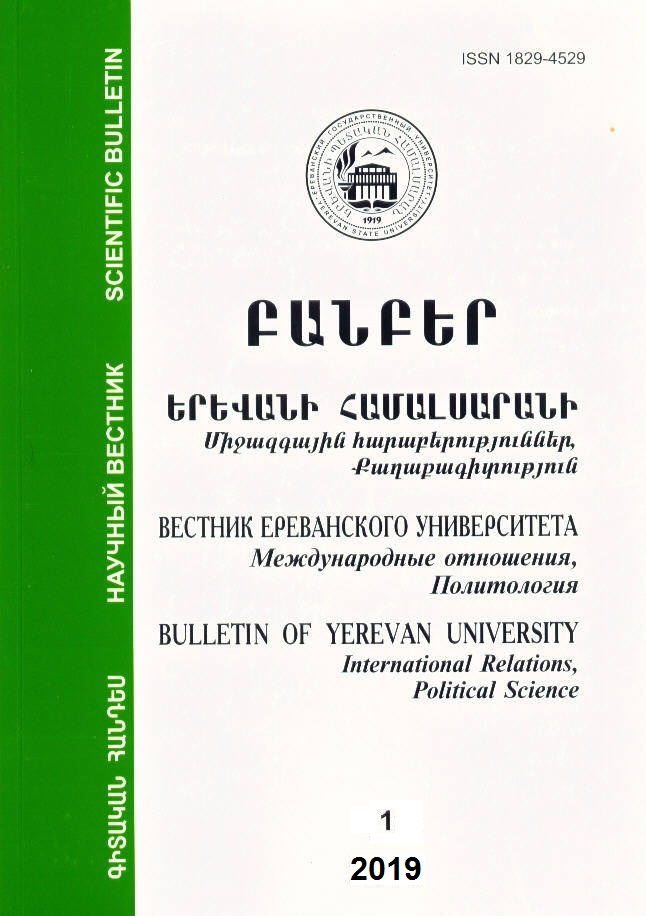Կառավարման ձևերի կերպափոխման միտումները հետխորհրդային երկրներում
Keywords:
խորհրդարանական կառավարում, պետական կառավարման արդյունավետություն, իշխանության տարանջատում, հանրային բարեփոխումներ, հետխորհրդային երկրներ, խորհրդարանի մոդելAbstract
Այսօր հանրային գիտակցության համար պետական կառավարման արդյունավետությունը դառնում է կարևոր: Եկել է զարգացման փուլը, որում կառավարման արդյունավետությունն ամենակարևոր գործոններից մեկն է: Միևնույն ժամանակ, չափազանց կարևոր են պետական մարմինների, հատկապես օրենսդիր մարմինների ձևավորման ընթացակարգերը: Միջազգային փորձը ցույց է տվել, որ կառավարման խորհրդարանական համակարգում օրենսդրական մարմինը կրում է հիմնական բեռը: Ենթադրվում էր, որ հետխորհրդային երկրներում պետական ձևերի վերափոխումը պետք է ապահովեր խորհրդարանների գործունեությունը, սահմանադրությունների, օրենքների ընդունումը և փոփոխությունը, դրանց կատարման վերահսկողությունը, հանրաքվեների նշանակումը, տարածաշրջանային ներկայացուցչական մարմինների ընտրությունների կազմակերպումը, կենտրոնական ընտրական հանձնաժողովի ձևավորումը և այլն:

